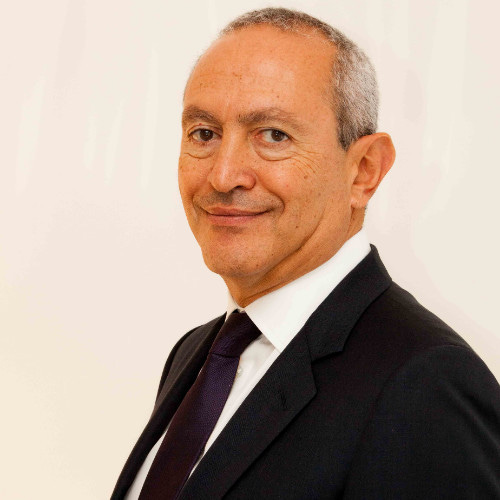The Dream of a Fair Premier League
The very rich are accustomed to eating the whole cake; four-fifths won’t do.
I did not intend to again begin one of these notes with a quotation. On the contrary, I aimed to craft an introduction reminding readers of my literary prowess. Nonetheless, my hand was forced after coming across an interview with Egyptian billionaire Nassef Sawiris in the Financial Times.
Sawiris, valued at $9 billion and, among other things, co-owner of Aston Villa Football Club, moved his residency out of the United Kingdom after a change in the tax law stopped allowing individuals living in the UK who declared that their permanent home lay outside the country to avoid paying UK taxes on foreign income and gains. The “non-domiciled” scheme was formally ended by the current Labour government, but plans to scrap it were announced under Tory rule.
Regarding the change, Mr Sawiris had this to say:
“You can’t blame Labour…This was all in the making for 10 years of incompetence by the most left-leaning Conservative party in history.”
Characterising recent Tory iterations as incompetent seems fair enough. To call the same party left-leaning—let alone historically left-leaning—is a grotesque interpretation. What does “left-leaning” even mean in this context?
We get a clue later in the same FT interview: “High net worth or wealthy entrepreneurs have options. [Chancellor Rachel Reeves] should treat them like they are her best clients.” It appears that the richest in society should get preferential treatment from the state because, if not, they will vacate the premises. Beyond evidence that such an argument is mainly scare-tactic—taxing the very rich is worth it even if some of them leave—this outlook is, obviously, incredibly selfish. Why are people allowed to “reside” in tax havens but benefit from education and use infrastructure and social safety nets in the United Kingdom? An individual should pay taxes in the country where one’s physical person actually resides. This cannot be controversial. Capital flows and business have gone global. Tax rules need to adapt.
That rich people pay a larger share of tax is often used to support the view that they must be catered to. For example, the top 10% of UK income earners pay over 60% of income tax. By comparison, the bottom 50% of income earners pay 9.3%. Yet, the poorest 10% of Britons paid a larger average share of their income in tax than the top 10% in 2022/2023. This is the tax system of a country governed by forces left of centre for over a decade, according to Egypt’s richest man.
Inequality matters. It deteriorates societies by impoverishing the majority of the population and paving the way for populist leaders. Any attempt at stopping the bleeding, even hollow ones such as the Tories’ loophole-riddled plan to end the non-domicile scheme, is met with extreme resistance. Nassef Sawiri and his friends are accustomed to eating the whole cake; four-fifths won’t do.
The irony is that policies which enrich the top 1% at the expense of everyone else create societies that rich people do not seem to enjoy. For one thing, higher poverty leads to more crime. Weaker economies are also usually not at the forefront of technological innovation. “Can’t we have one here?”, asked British entrepreneur and YouTuber Steven Bartlett on a podcast episode titled EMERGENCY DEBATE: They Lied About The Economy Recovering! Is A Financial Apocalypse Coming?. He was referring to the fact that the UK does not have a technology firm rivalling Apple, Google and Microsoft. Bartlett then posits that Britain needs to develop an entrepreneur-friendly environment for such companies to flourish.
What his analysis misses is that value is generated collectively. For a high-tech company to be profitable in the UK, there needs to be plenty of available customers with money to pay for its services. The problem is that the British economy is frail, with the rich being the only group with any real purchasing power—as Bartlett was reminded by one of his guests, Gary Stevenson, a trader-turned-activist.
The second guest on this particular episode was Daniel Priestly, an entrepreneur who has written books on starting and scaling businesses. He believes that rich people are taxed too much and that the UK’s woes can be attributed to a decline in economic freedoms, as defined by the Heritage Foundation’s Index For Economic Freedom. The Heritage Foundation is, of course, the institution behind the infamous Project 2025, the policy roadmap Donald Trump is currently implementing in the US. Regardless, how anyone can look at the UK and discern that what has happened is anything other than the complete triumph of the kind of destructive capitalism championed by the Heritage Foundation and similar organisations is farcical. To suggest that the solution be more of the same seems out of touch, to say the least. (For more on this phenomenon, I strongly recommend Abby Innes’ Late Soviet Britain).
Adding a layer of irony, Daniel Priestly’s main contention with the current order is that digital businesses like his hit a ceiling because they get bullied by Amazon and Meta. Their ability to strong-arm competition is probably unrelated to the enormous power of tech billionaires in American society.
Nassef Sawiris, who is in a different league to Priestly wealth-wise, shares his cognitive dissonance. In the Financial Times interview quoted above, Sawiris expresses displeasure with the non-competitive rules of the English Premier League, which prevents challengers from disrupting the dominance of the big clubs: “The Premier League is under the impression that what makes it great is Manchester United and Liverpool and Chelsea and Arsenal, so they have to cater for these guys. But what makes the Premier League great is that Manchester United get their butts kicked by Brighton.” These individuals are not serious people. They and their cronies cannot be allowed to shape economic policy or determine matters of state.
// Adrian






Greed and a lack of moral integrity - things must change! A very interesting read